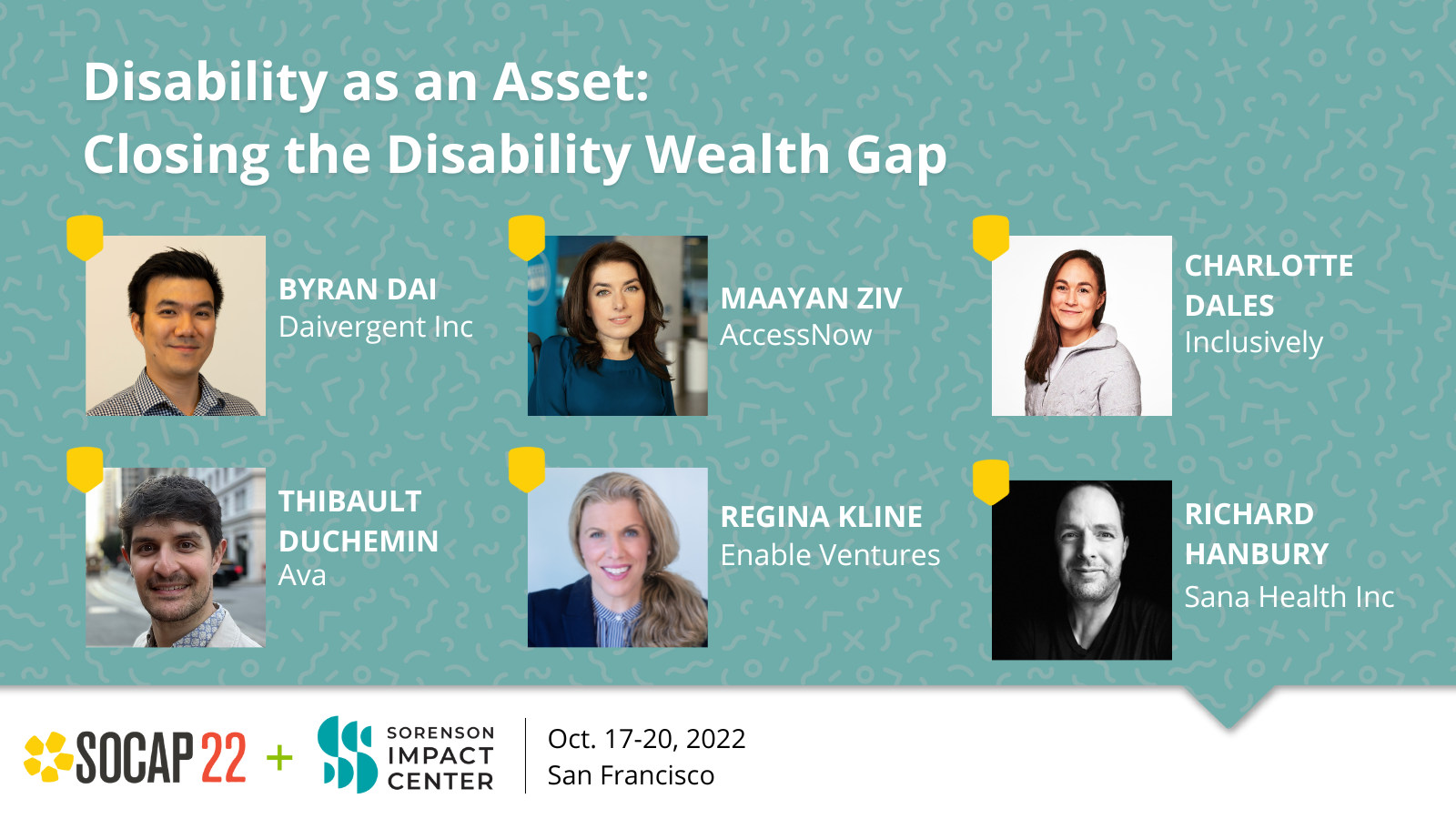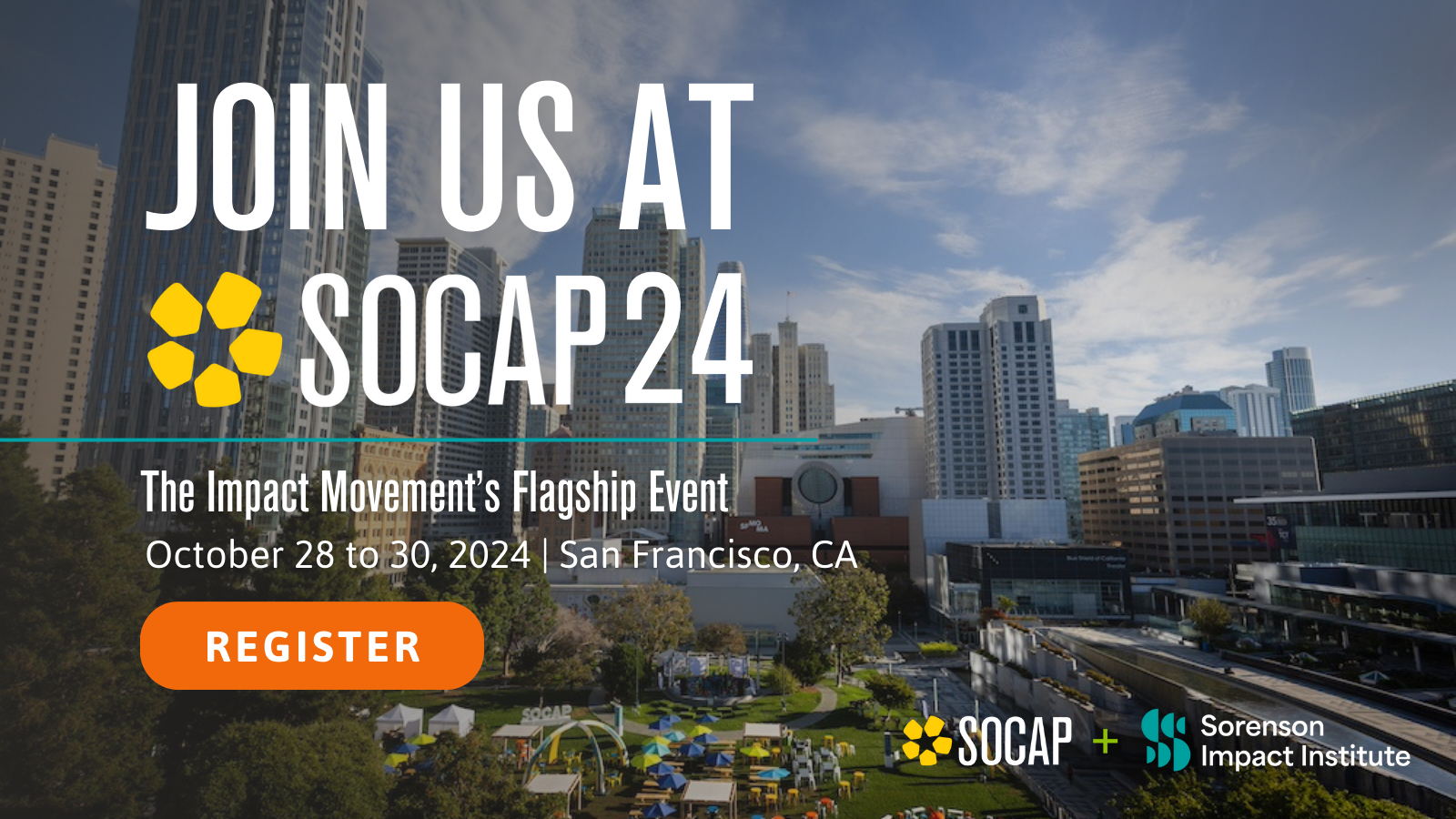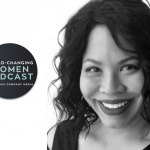From SOCAP22: Closing the Disability Wealth Gap Through Innovation and Inclusion
While there are 1.5 billion people worldwide with disabilities, nearly two-thirds of them are not employed. As investors and others increasingly earmark capital to build a more inclusive workforce and economy, the often-overlooked and underserved population of people with disabilities presents a key market opportunity.
The SOCAP22 mainstage session “Disability as an Asset: Closing the Disability Wealth Gap” featured entrepreneurs who are seizing that opportunity and building a more inclusive workforce. Their early-stage products and services offer solutions that serve people with disabilities and the broader economy. As moderator Gina Kline of Enable Ventures said, people with disabilities now are working in roles that primarily involve rote manual tasks — while the workplaces around them increasingly turn to remote, flexible ways of working amid technological change.
“What that all means to me is there is an opportunity that doesn’t come along often for this group,” she said. “Technology has the ability to widen inequality or advance radical inclusion. There are people who are advancing the concept of human-centered design, universal design, inclusive design.” These founders are creating on-ramps to the marketplace, Kline said, and “are putting the human experience at the center of tech.”
Thibault Duchemin built on his experience as the only hearing person in his family to start what now is Ava, a live captioning service originally designed for people who are deaf or hard of hearing. That personal connection continues to motivate him in his everyday work. “I don’t see them as clients; I see them as family,” he said. “This is our responsibility to open up that space for people who don’t always get their stories heard, because communication is their disability. … We try to make them loud and clear.”
Similarly, Byran Dai created Daivergent as a way to connect employers with job-seekers in the neurodiversity and disability communities, who can access virtual job-training programs and other supports that put them on the path to remote-work opportunities to build a more inclusive workforce. “The initial desire was built for my family but … these are not disability-specific needs,” he said. “There are these common universal challenges, but they are more powerfully felt among some populations. We’re really trying to support someone in becoming independent.”
Helping to build a more diverse and inclusivce workforce also is the goal for Charlotte Dales of Inclusively, a platform that assists employers with information about accommodations, access, training, and support when hiring people with disabilities. “When I started this company, people would ask, ‘Why are you not a nonprofit?’ I needed businesses to see the value in hiring people with disabilities,” she said. “It’s really not that hard to accommodate people with disabilities. By being able to be flexible, you’re creating a better hiring process for everyone.”
Making changes that make things better for everyone is a common theme of products that start as solutions for people with disabilities, said Maayan Ziv of AccessNow, an app designed to empower people living with disabilities to live more independently. “Accessibility is fundamentally a customer service issue that’s been neglected for a long time,” she said. “We’re narrowing in on the insight for a mass demographic that has not been part of mainstream discussions or ways of doing business. We’ve seen an amazing shift in the last year where businesses are starting to realize that there is a huge market opportunity, and for us that’s tremendously exciting.”
At Sana Health, Founder Richard Hanbury sees a similar growth opportunity for the company’s AV device designed to boost physical and mental well-being. While he initially created it as part of his recovery from a spinal cord injury, Hanbury has since expanded its reach to provide pain relief and healing for the millions of people who otherwise turn to prescription painkillers and other treatments. “We’re targeting the fundamental things that are wrong within the U.S. health system,” he said. “How do you help more people and find the people who need the largest help?”
Watch Now: Disability as an Asset: Closing the Disability Wealth Gap
Speakers:
Byran Dai, Daivergent
Charlotte Dales, Inclusively
Thibault Duchemin, Ava
Richard Hanbury, Sana Health
Maayan Ziv, AccessNow
Moderator:
Gina Kline, Enable Ventures





